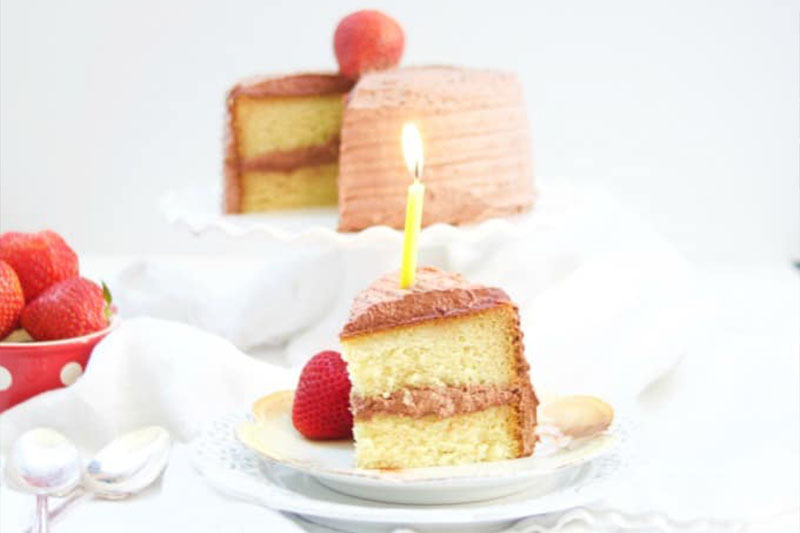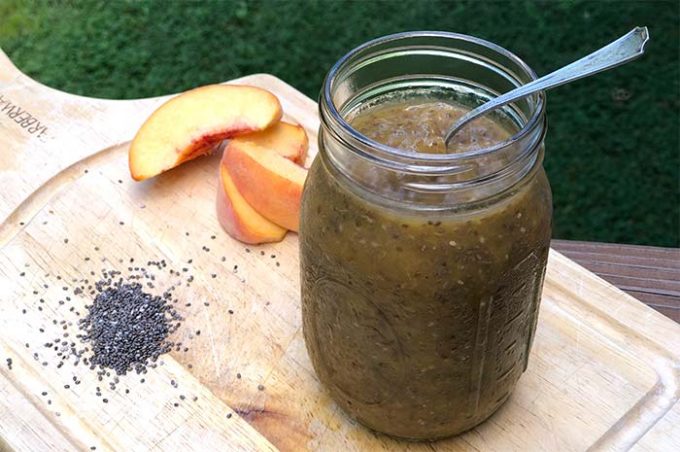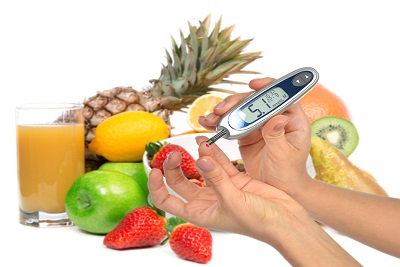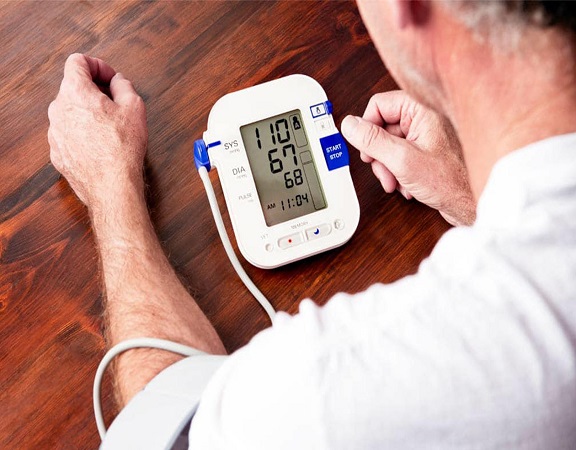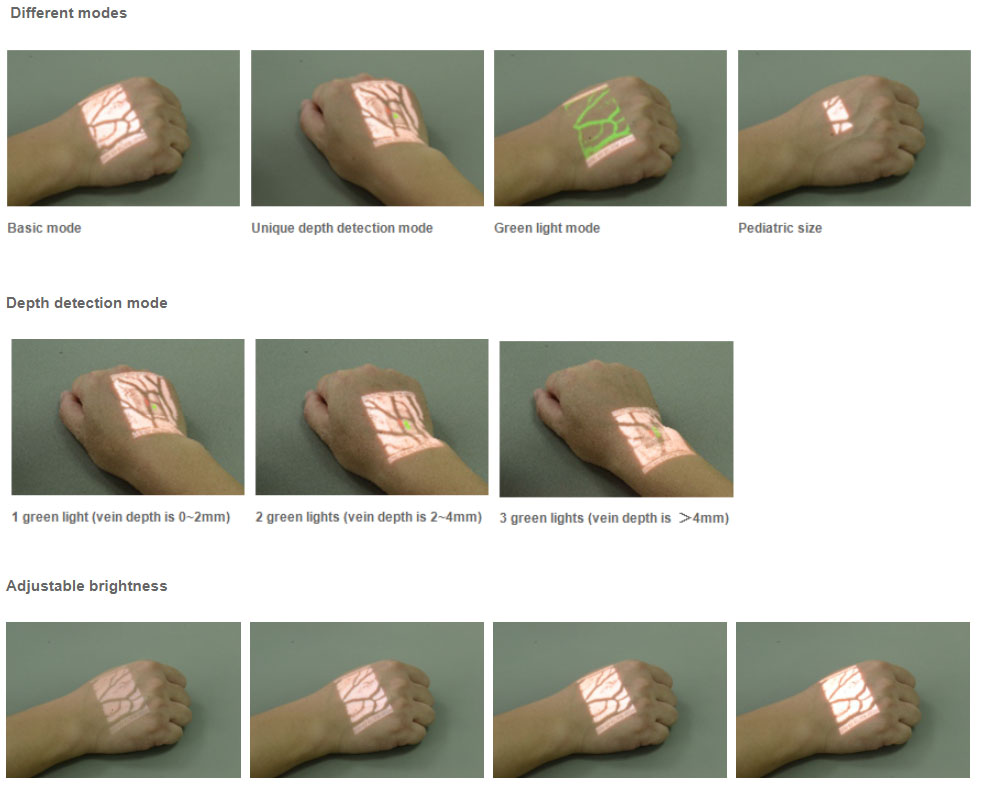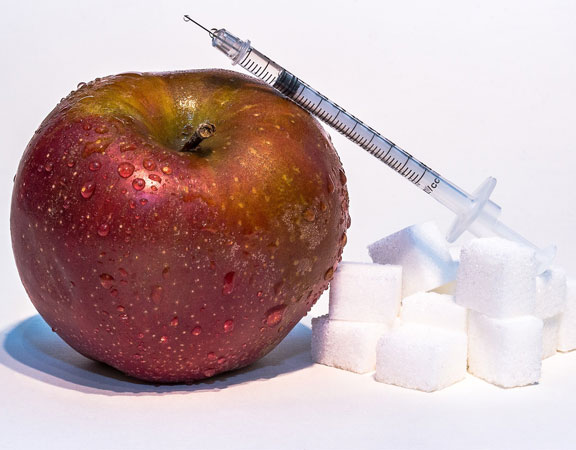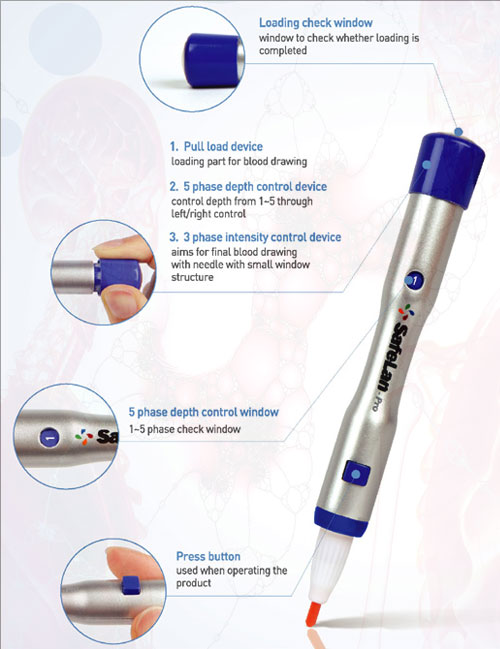Blog
July, 2020
This is a Sugar free Cake, great for those with diabetes. During this COVID its hard to find cakes that best suit our needs, so we have got the recipe for you. Serves 6.
Ingredients
For Vanilla Cake
For Choclate Frosting
Instructions
For Cake
Recipe Notes
*If using Zing, reduce the amount of sugar to 1/2 cup.
Double the ingredients for a 9" cake. Baking time may change as well
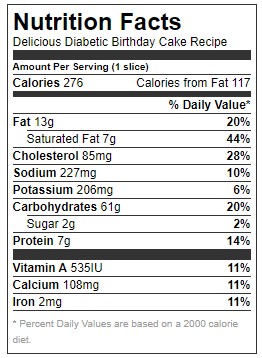
Ingredients
For Vanilla Cake
- 1 3/4 Cup All Purpose Flour
- 2 Large Eggs
- 6 Tablespoon unsalted melted Butter
- 1 cup sugar substitute (Swerve or Splenda)*** *please see notes
- 1 Teaspoon baking soda
- 1 Teaspoon baking powder
- Pinch of salt
- 1 Cup skim milk
- 1 Tablespoon vinegar
- 2 teaspoons vanilla extract
For Choclate Frosting
- 1 Tub of whipped topping (sugar free) thawed
- 1 - 1 oz packet of chocolate fudge instant pudding (sugar free) or any other flavour you may like
- 1/4 cup skim milk
Instructions
For Cake
- Mix the milk and vinegar and let it sit for 10 minutes (it will turn into buttermilk)
- After 10 minutes, mix well with a spoon
- Preheat oven to 350 degrees Fahrenheit
- Spray the inside of a 6" cake pan with nonstick spray
- Add a little flour inside the pan and round it alongside the whole surface. Discard the excess flour
- In a bowl, mix the flour, sugar blend, baking soda, baking powder and salt
- In another bowl, mix the egg until foamy, add the butter and mix until creamy
- Alternate adding the buttermilk and dry mixture into 2-3 batches, starting and finishing with the dry ingredients. Mix well between each addition
- Lastly, add the vanilla and mix
- Pour the cake batter in the prepared pan
- Bake for 30-40 minutes or until a toothpick inserted in the middle comes out clean
- Remove from the oven and let it rest for 20 minutes on a rack
- Unmold and let it cool completely before frosting
- When cake is completely cooled, slice it in the middle to create 2 layers
- In a bowl, mix everything together using an electric mixer
- If frosting seems too stiff, add some more milk until creamy
- Place frosting in between the layers of the cake
- Cover with second layer
- Frost the top and sides of the cake
- Enjoy!
Recipe Notes
*If using Zing, reduce the amount of sugar to 1/2 cup.
Double the ingredients for a 9" cake. Baking time may change as well

May 13, 2014
At Diamedica, we are taking all the safety measures to stay safe during this COVID-19 crisis. We have made sure we are keeping up to date with the new research of COVID0-19 and how it may affect Diabetics.
COVID-19 creates a double challenge for those who suffer from diabetes, therefore increasing the risk of diabetes. It is facts that individuals, with diabetes are at an increased risk of infections such as influenza. Diabetics have impaired immune response to infection both relation to cytokine profile and to changes in immune-responses including T-cell and macrophage activation.
Late diabetic complications such as diabetic kidney disease and ischaemic heart disease may complicate the situation for people with diabetes, making them frailer and further increasing the severity of COVID-19 disease and the need for care such as acute dialysis. Some findings indicate that COVID-19 could cause acute cardiac injury with heart failure, leading to deterioration of circulation.
So here is how you can stay safe during this COVID-19 crisis:
Li B, Yang J, Zhao F, et al. Prevalence and impact of cardiovascular metabolic diseases on COVID-19 in China. Clin Res Cardiol. 2020; doi: 10.1007/s00392-020-01626-9.
Ferlita S, Yegiazaryan A, Noori N et al. Type 2 diabetes mellitus and altered immune system leading to susceptibility to pathogens, especially mycobacterium tuberculosis. J Clin Med. 2019;8. pii: E2219.
COVID-19 creates a double challenge for those who suffer from diabetes, therefore increasing the risk of diabetes. It is facts that individuals, with diabetes are at an increased risk of infections such as influenza. Diabetics have impaired immune response to infection both relation to cytokine profile and to changes in immune-responses including T-cell and macrophage activation.
Late diabetic complications such as diabetic kidney disease and ischaemic heart disease may complicate the situation for people with diabetes, making them frailer and further increasing the severity of COVID-19 disease and the need for care such as acute dialysis. Some findings indicate that COVID-19 could cause acute cardiac injury with heart failure, leading to deterioration of circulation.
So here is how you can stay safe during this COVID-19 crisis:
- Minimise risk by changing your daily life and social behaviour. Leave your house when needed and keep your distance from others around you
- Practise personal hygiene to minimise the spread of germs, regularly wash hands with alcohol based hand wash or rubs, cover your mouth and nose with elbow or tissue when coughing or sneezing and avoid touching your eyes, nose and mouth as your hands has touched many surfaces
- Social distancing requires at least 1.5metres away from each person, and limit physical contact by not shaking hands, consider opening windows instead of the aircon, and reschedule all large gatherings.
- Seek medical attention if you feel the slightest of and COVID-19 symptoms.
- Stay informed, keep checking the updates from the department of health, WHO and state and territory health departments.
Li B, Yang J, Zhao F, et al. Prevalence and impact of cardiovascular metabolic diseases on COVID-19 in China. Clin Res Cardiol. 2020; doi: 10.1007/s00392-020-01626-9.
Ferlita S, Yegiazaryan A, Noori N et al. Type 2 diabetes mellitus and altered immune system leading to susceptibility to pathogens, especially mycobacterium tuberculosis. J Clin Med. 2019;8. pii: E2219.
May 13, 2014
Diamedica is highly dedicated to our custumers. We drive 18hrs from Sydney to Melbourne to pick up Personal Protective Equipment. We are are able to consistently keep driving as we have our very own Special Border Front-liner Pass. Once we pick it up we drive straight backto sydnet and ensure its delivered to all our Age Care Facilities by next day!
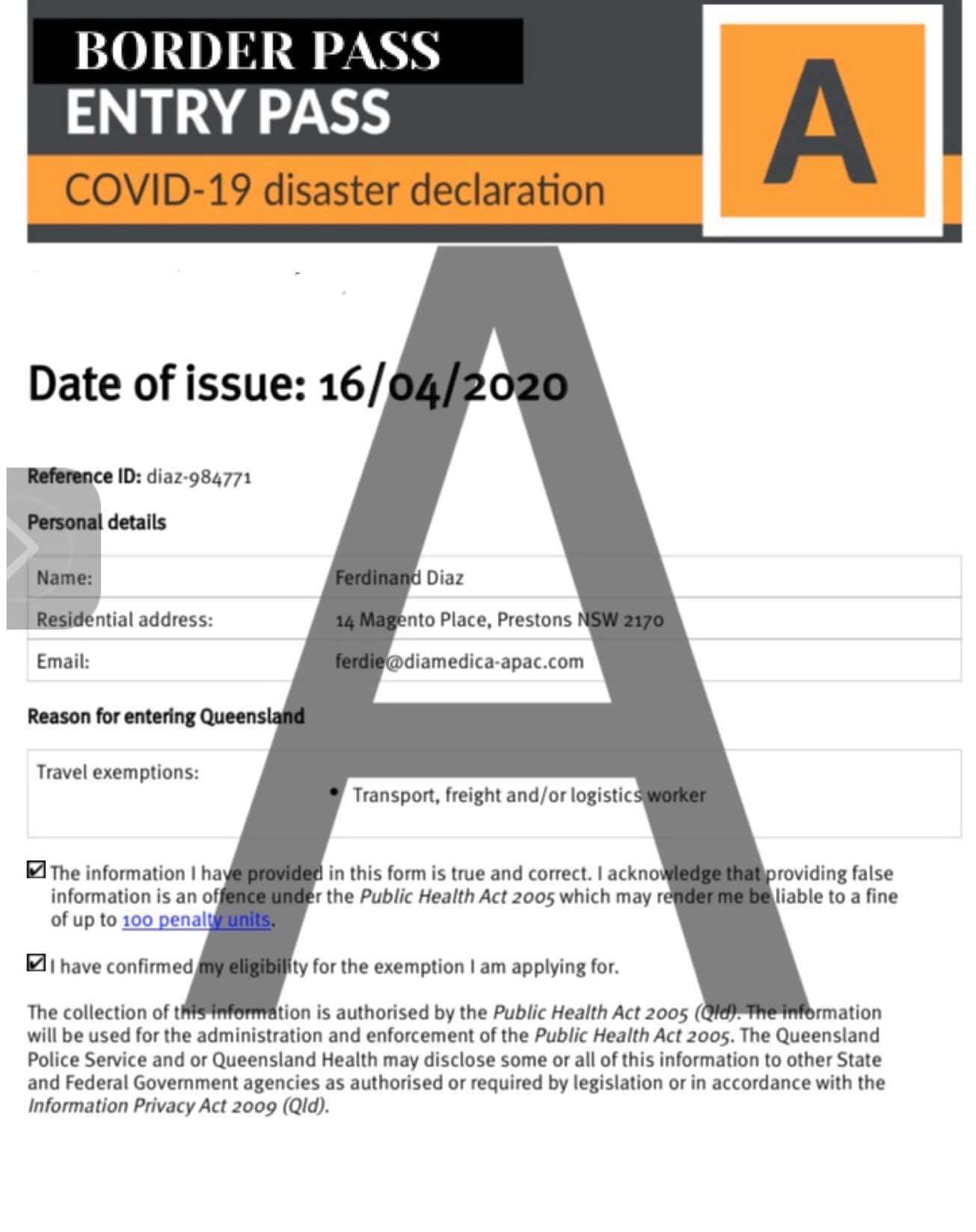

September, 2019
This is a great recipe for those with Diabetes. You can make it for yourself, or for someone who is diabetic of if you just want to eat a healthy life. You can use this spread on you pancakes, toast, Greek yogurt, ice cream or even in a smoothie. Using fresh peaches for this jam and you wont need any sweetener.
Ingredients
Instructions
Recipe Notes
If you don't have any almond extract, use all vanilla extract (2 teaspoons total).
This recipe will also work with nectarines.
Ingredients
- 4 cups ripe peaches peeled and diced
- 1 tablespoon fresh lemon juice
- 1 teaspoon vanilla extract
- 1 teaspoon almond extract
- 1/4 cup chia seeds
Instructions
- In a 6-quart electric pressure cooker, stir together the peaches, lemon juice, vanilla extract, and almond extract. Close and lock the lid of the pressure cooker and set the valve to sealing. Cook on high pressure for 2 minutes. Allow the pressure to release naturally for 15 minutes, then quick release the remaining pressure. Remove the lid and set it aside.
- Use an immersion blender to purée the peach mixture right in the pot. Stir in the chia seeds and hit Sauté. (Use the Sauté/Low setting if your electric pressure cooker has it.) Stir constantly for about 5 minutes or until the jam has reached the consistency you like. Note: splattering will be greatly reduced if you keep stirring.
- Cool to room temperature, then transfer the jam to a jar and store in the refrigerator for up to 2 weeks.
Recipe Notes
If you don't have any almond extract, use all vanilla extract (2 teaspoons total).
This recipe will also work with nectarines.
NUTRITION FACTS
PER SERVING (2 TABLESPOONS)
| CALORIES: 29kcal | FAT: 1g | POLYUNSATURATED FAT: 1g |
| POTASSIUM: 93mg | CARBOHYDRATES: 5g | FIBER: 1g |
| SUGAR: 4g | PROTEIN: 1g | VITAMIN A: 3% |
| VITAMIN C: 5% | CALCIUM: 15% | IRON: 1% |
May 13, 2014
Those dealing with diabetes, should follow the guidelines of the Australian dietary. Eating the recommended food amount from the five food groups, providing you with the nutrients needed to healthy and prevent chronic disease such as obese and heart disease.
Australian Dietary Guidelines – Adults
Australian Dietary Guidelines – Children
Managing your diabetes can controlled through the following steps:
What are saturated fat foods?
Saturated fats are found in animal foods such as milk, butter, meats and cheese. Vegetable fats that are saturated include palm oil. Which are found in solid cooking fats, snack foods or convenience foods, as well as coconut products like copha, coconut milk and cream.
To reduce consuming saturated fat:
How to enjoy a diabetics diet.
Australian Dietary Guidelines – Adults
Australian Dietary Guidelines – Children
Managing your diabetes can controlled through the following steps:
- Eat regular meals throughout the day.
- Eat a low-fat diet, avoiding saturated fat.
What are saturated fat foods?
Saturated fats are found in animal foods such as milk, butter, meats and cheese. Vegetable fats that are saturated include palm oil. Which are found in solid cooking fats, snack foods or convenience foods, as well as coconut products like copha, coconut milk and cream.
To reduce consuming saturated fat:
- Pick reduced or low-fat milk, cheese, yoghurt, ice-cream and custard
- Choose lean meat and trim the fat off before cooking
- Remove the skin from chicken, duck and other poultry before cooking
- Avoid using butter, lard, cream copha, coconut milk/cream and hard cooking margarines
- Limit cakes, pastries, puddings, chocolate, cream biscuits to special occasions
- Limit deli meats and sausages
- Limit pre-packed biscuits, savoury packet snacks, frozen/convenience foods
- Avoid fast foods, takeaways, sausage rolls and pies
- Limit creamy style soups
How to enjoy a diabetics diet.
- Stir fry meat and vegetables in a little canola oil with garlic and chilli
- Season, salad or steamed vegetables with a little olive oil and lemon juice or vinegar
- Sprinkle sesame seeds on steamed vegetable
- Snack on palm sized amount of unsalted nuts, or add some to a salad of stir-fry
- Spread avocado on sandwiches and toast, or add to a salad
- Eat more fish because it contains a special type of fat called, Omega-3, which is great for the heart
- Attempt to cook more grilling, dry roasting, microwaving and stir-frying in non-stick pan type of meals
- Avoid foods that are deep fried, battered and crumbed foods
May 13, 2014
Many people instantly recoil at the idea of a vegan diet, but this attitude is gradually changing, mostly amongst people with diabetes. Can people with diabetes use a vegan diet to improve blood glucose control? Absolutely.
By eating a healthy vegan diet low in cholesterol and saturated fat, but balanced enough to include fibre and protein, blood glucose levels can be made easier to control. A Vegan Diet, when combined with exercise, can help to lower blood glucose levels and better manage diabetes.
What is a vegan diet for diabetes?
A vegan diet effectively means cutting out meat, dairy and animal products whether you have diabetes or not.
So, what do you eat?
Vegan diets, whether for people with diabetes or not, are usually based around plants. Foods eaten include vegetables, fruit, grains, legumes.
Animal products such as meat and dairy are avoided, as are added fat and sugar. People on vegan diets often take vitamin B12 deficiency supplements.
Is a Vegans diet hard for diabetics to stick with?
Eating a vegan diet does require some compromise but getting the right diabetes recipes and planning your diet well will make following a vegan diet for diabetes easy. When planning your vegan diet, you need to make sure that protein, carbohydrates, fat, vitamins and minerals are balanced.
Vegan diets do not usually demand that portions be stuck to or calories counted, making them easier to follow than some diabetes diets.
Can I lose weight using a vegan diet?
Many people with diabetes, particularly type 2 diabetes, have a firm goal to lose weight. Weight loss is well understood as one of the best ways of achieving diabetes control. Vegan diets with a lower glycaemic index and a higher level of fibre are an excellent way of losing weight and improving body mass index.
By eating a healthy vegan diet low in cholesterol and saturated fat, but balanced enough to include fibre and protein, blood glucose levels can be made easier to control. A Vegan Diet, when combined with exercise, can help to lower blood glucose levels and better manage diabetes.
What is a vegan diet for diabetes?
A vegan diet effectively means cutting out meat, dairy and animal products whether you have diabetes or not.
So, what do you eat?
Vegan diets, whether for people with diabetes or not, are usually based around plants. Foods eaten include vegetables, fruit, grains, legumes.
Animal products such as meat and dairy are avoided, as are added fat and sugar. People on vegan diets often take vitamin B12 deficiency supplements.
Is a Vegans diet hard for diabetics to stick with?
Eating a vegan diet does require some compromise but getting the right diabetes recipes and planning your diet well will make following a vegan diet for diabetes easy. When planning your vegan diet, you need to make sure that protein, carbohydrates, fat, vitamins and minerals are balanced.
Vegan diets do not usually demand that portions be stuck to or calories counted, making them easier to follow than some diabetes diets.
Can I lose weight using a vegan diet?
Many people with diabetes, particularly type 2 diabetes, have a firm goal to lose weight. Weight loss is well understood as one of the best ways of achieving diabetes control. Vegan diets with a lower glycaemic index and a higher level of fibre are an excellent way of losing weight and improving body mass index.
May 13, 2014
High Blood pressure is one of the most common health conditions, affecting individuals worldwide.
Let us educate.
Your heart pumps blood into your organs and tissues. Blood pumps out the left of your heart into the arteries – the blood vessels that carry the blood oxygen and nutrients to your body. As the blood pumps out of the heart and into the arteries, it pushes against the artery walls. Therefore, blood pressure is the measurement of the pressure of the blood in the artery.
A normal blood pressure level reading is under 120/80mmHg. Blood pressure readings over 120/80mmHg and up to 139/89mmHg are in the normal to high range.
A high blood pressure level reading occurs at 140/90mmHg. When your blood pressure is high your heart and arteries become overload. The accelerations of the build-up of plaque on the artery walls, clogging blood flow, to your heart muscle, occurs from high blood pressure, which can cause a greater risk of heart attack. There are many cases to the cause of high blood pressure, though the most significant results occur from:
To control high blood pressure simple change in lifestyle choice can do the trick:
Blood pressure needs to be monitored regularly.
Information Sourced from the Heart Foundation Australia
We are selling a high-end blood pressure monitoring machines with admirable features. The RossmaxAutomatic Blood Pressure Monitor is afully automatic, upper arm blood pressure monitor which gives you a result with a press of a button. The Rossmax X3 blood pressure monitor is enhanced with advanced technology giving the highest possible grade.
Let us educate.
Your heart pumps blood into your organs and tissues. Blood pumps out the left of your heart into the arteries – the blood vessels that carry the blood oxygen and nutrients to your body. As the blood pumps out of the heart and into the arteries, it pushes against the artery walls. Therefore, blood pressure is the measurement of the pressure of the blood in the artery.
A normal blood pressure level reading is under 120/80mmHg. Blood pressure readings over 120/80mmHg and up to 139/89mmHg are in the normal to high range.
A high blood pressure level reading occurs at 140/90mmHg. When your blood pressure is high your heart and arteries become overload. The accelerations of the build-up of plaque on the artery walls, clogging blood flow, to your heart muscle, occurs from high blood pressure, which can cause a greater risk of heart attack. There are many cases to the cause of high blood pressure, though the most significant results occur from:
- Being overweight
- Not getting enough physical activity
- Drinking more than 2 alcoholic drinks per day
- Stress
- Old Age
- Smoking
- Family history of high blood pressure.
To control high blood pressure simple change in lifestyle choice can do the trick:
- Regular physical activity
- Maintaining healthy weight
- Limit alcohol intake
- Stop smoking
- Healthy diet
Blood pressure needs to be monitored regularly.
Information Sourced from the Heart Foundation Australia
We are selling a high-end blood pressure monitoring machines with admirable features. The RossmaxAutomatic Blood Pressure Monitor is afully automatic, upper arm blood pressure monitor which gives you a result with a press of a button. The Rossmax X3 blood pressure monitor is enhanced with advanced technology giving the highest possible grade.
May 13, 2014
Diabetes isn’t a quick fix, but it can be maintained through physical activity and healthy eating. It is important to watch your health and as active as possible in as many ways. Aim to be as active as 30 minutes a day on most days of the week. A regular half an hour of physical activity can do wonders to your health, by lowering:
It can also reduce both stress and anxiety, whilst improving your mood, self-esteem, quality of sleep and muscle and bone strength. More information at
Click here
- Blood glucose levels
- Cholesterol
- Blood pressure
It can also reduce both stress and anxiety, whilst improving your mood, self-esteem, quality of sleep and muscle and bone strength. More information at
Click here
May 13, 2014
The Projection Vein Finder VIVO500S is the updated version of VIVO500. It is based on the principle that human hemoglobin has a higher absorption of infrared light than other tissues. With our enhanced imaging processing unit, up 80% invisible veins can be detected. The processed vein image is synchronously and precisely projected back on to the skin.
This VIVO500S is the new member of the VIVO family of innovative “vascular imaging” devices. The VIVO500S has a variety of new features. It sees through all shades of skin to identify the target vein. VIVO500s is extremely light and handy at a weighing of only 0.5kg and about the size of a bottle. It is designed for maximum portability and durability, with over 90 minutes of service on a single charge. It accurately displays the vascular image within 4 seconds of booting and provides multiple modes of operation/ The VIVO500s also offers a unique function that estimates the depth of the target vein using our patented technology.
Projected harmless near-infrared light is absorbed by hemogoblin in the blood and reflected by surrounding tissue. After undergoing processing by a series of propriety algorithms, the image is then accurately projected back onto the patient’s skin in real time. With a fresh new streamlined appearance VIVO500s comes equipped with a vivolight’s new imaging processor, a pico projector optical module and a harmless low-energy LED light source.
VIVO500 is easy to operate, with adjustable brightness and two window size to accommodate both adults and children. It has three modes of operation. General, Green Light and vein Depth Display mode. Health professionals can select from these options to fit patient type: child, elderly, dark-skinned people or heavy set.
VIVO500s is a must-have practical apparatus for ICU injection rooms, and nursing departments. It has earned great acclaim from doctors and nurses. VIVO500s is making Phlebological history. It provides the unprecedented advantages that you deserve today.
This VIVO500S is the new member of the VIVO family of innovative “vascular imaging” devices. The VIVO500S has a variety of new features. It sees through all shades of skin to identify the target vein. VIVO500s is extremely light and handy at a weighing of only 0.5kg and about the size of a bottle. It is designed for maximum portability and durability, with over 90 minutes of service on a single charge. It accurately displays the vascular image within 4 seconds of booting and provides multiple modes of operation/ The VIVO500s also offers a unique function that estimates the depth of the target vein using our patented technology.
Projected harmless near-infrared light is absorbed by hemogoblin in the blood and reflected by surrounding tissue. After undergoing processing by a series of propriety algorithms, the image is then accurately projected back onto the patient’s skin in real time. With a fresh new streamlined appearance VIVO500s comes equipped with a vivolight’s new imaging processor, a pico projector optical module and a harmless low-energy LED light source.
VIVO500 is easy to operate, with adjustable brightness and two window size to accommodate both adults and children. It has three modes of operation. General, Green Light and vein Depth Display mode. Health professionals can select from these options to fit patient type: child, elderly, dark-skinned people or heavy set.
VIVO500s is a must-have practical apparatus for ICU injection rooms, and nursing departments. It has earned great acclaim from doctors and nurses. VIVO500s is making Phlebological history. It provides the unprecedented advantages that you deserve today.
May 13, 2014
Diabetes is a continuing condition where the sugar levels in the blood is too high. Diabetes occurs when there is a problem with hormone insulin level.
Glucose, other known as the sugar, is the main source of energy in the body. It can come from many sorts of foods that contain carbs such as milk, fruit, bread, potato and pasta. When these foods are digested, the glucose is released into the bloodstreams.
Diabetes occurs either when the pancreas can’t make insulin which is type 1 diabetes, or the body cells do not respond to the insulin appropriately and the pancreas begins to produce poor insulin for the body’s higher needs which is type2 diabetes.
Diabetes can result to symptoms, which are the following:
Glucose, other known as the sugar, is the main source of energy in the body. It can come from many sorts of foods that contain carbs such as milk, fruit, bread, potato and pasta. When these foods are digested, the glucose is released into the bloodstreams.
Diabetes occurs either when the pancreas can’t make insulin which is type 1 diabetes, or the body cells do not respond to the insulin appropriately and the pancreas begins to produce poor insulin for the body’s higher needs which is type2 diabetes.
Diabetes can result to symptoms, which are the following:
- Weight loss
- Nausea
- Being more thirsty than usual
- Feeling tired and lethargic
May 13, 2014
A Lancet is a small medical equipment which is used to sample blood. This device is used by people with diabetes. Lancets are designed with a small double-edged blade or needle, which is used to puncture the skin to retract blood. Blood Glucose lancets was invented to obtain small blood specimens which are tested for blood glucose and other blood components.
At Diamedica we sell three different types of lancets all by manufacturers we trust. MyLife and SafeLan® are the two brands which we highly recommend to those with diabetes interest.
Each lancet device has its own characteristics and may benefit you depending on which you choose. Our most popular brand is SafeLan® Lancet, we sell both the device and the lancet. The SafeLan® pro fingerstick device was developed to prevent transmitting blood-borne pathogens by used lancets. The idea behind the device was to keep a clean and safe method for each use, hence is why disposable lancets was invented. The SafeLan® was designed to minimise pain by accurate needling without vibration of the needle.
MyLife is another brand which specialises in lancets. MyLife has developed two types of lancets equipment. ClickFine Auto Protect is a needle device which is covered by a cap, it was designed as a locking mechanism to prevent needle injuries. MyLife has also developed a lancet which allows a safe and easy blood sampling.
These days brands specialising in diabetes care, are designing and manufacturing diabetes testing equipment for a safer and easier to use whilst limiting as much pain as possible.
Check out our Shop
At Diamedica we sell three different types of lancets all by manufacturers we trust. MyLife and SafeLan® are the two brands which we highly recommend to those with diabetes interest.
Each lancet device has its own characteristics and may benefit you depending on which you choose. Our most popular brand is SafeLan® Lancet, we sell both the device and the lancet. The SafeLan® pro fingerstick device was developed to prevent transmitting blood-borne pathogens by used lancets. The idea behind the device was to keep a clean and safe method for each use, hence is why disposable lancets was invented. The SafeLan® was designed to minimise pain by accurate needling without vibration of the needle.
MyLife is another brand which specialises in lancets. MyLife has developed two types of lancets equipment. ClickFine Auto Protect is a needle device which is covered by a cap, it was designed as a locking mechanism to prevent needle injuries. MyLife has also developed a lancet which allows a safe and easy blood sampling.
These days brands specialising in diabetes care, are designing and manufacturing diabetes testing equipment for a safer and easier to use whilst limiting as much pain as possible.
Check out our Shop
May 13, 2014
Diabetes is the fastest growing chronic condition in Australia, and nurses play a pivotal role in supporting the person living with diabetes. DiabetesQualified.com.au provides Nurses with an elearning course. This course can be completes anywhere at any time, allowing convenience to learn at your own pace. Diabetes in practice for Nurses provides an increased knowledge and understanding of diabetes, enabling you to have meaningful conversations with people living with diabetes using simple, clear language.
Result in completion of this course, improves your ability to support those living with Diabetes and have a more helpful conversation using health literacy principles. Have the tools and resources to implement what you’ve learnt in your workplace, improving health outcomes for people living with diabetes. And much more.
If you are interested in becoming specialised in Diabetes interest, feel free to check out diabetesqualified.com.au and join the course.
Result in completion of this course, improves your ability to support those living with Diabetes and have a more helpful conversation using health literacy principles. Have the tools and resources to implement what you’ve learnt in your workplace, improving health outcomes for people living with diabetes. And much more.
If you are interested in becoming specialised in Diabetes interest, feel free to check out diabetesqualified.com.au and join the course.


